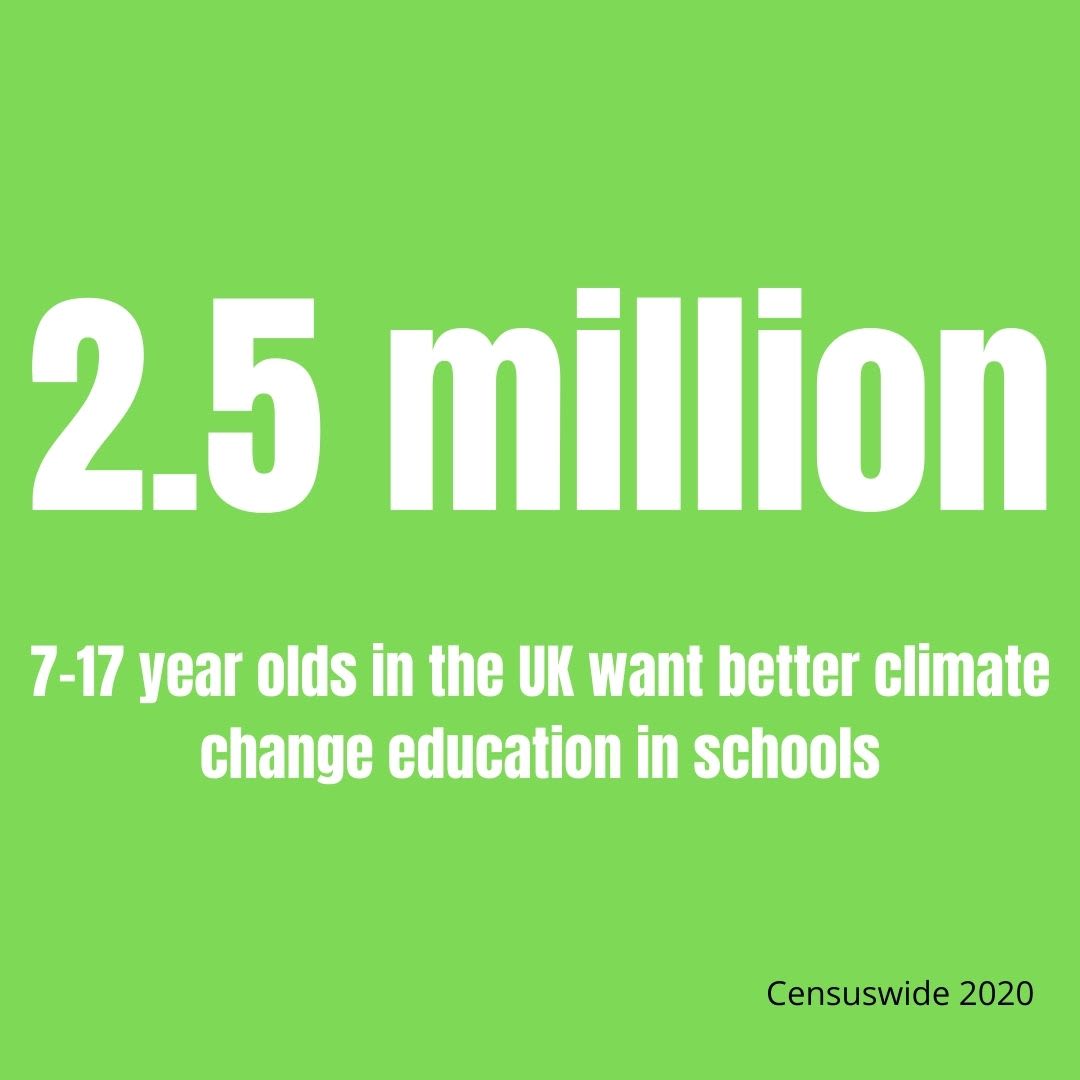The young
people calling
for better
education on
the climate
crisis
How the climate change
campaigners Teach The Future
made history by presenting a
bill written by teenagers to
Parliament
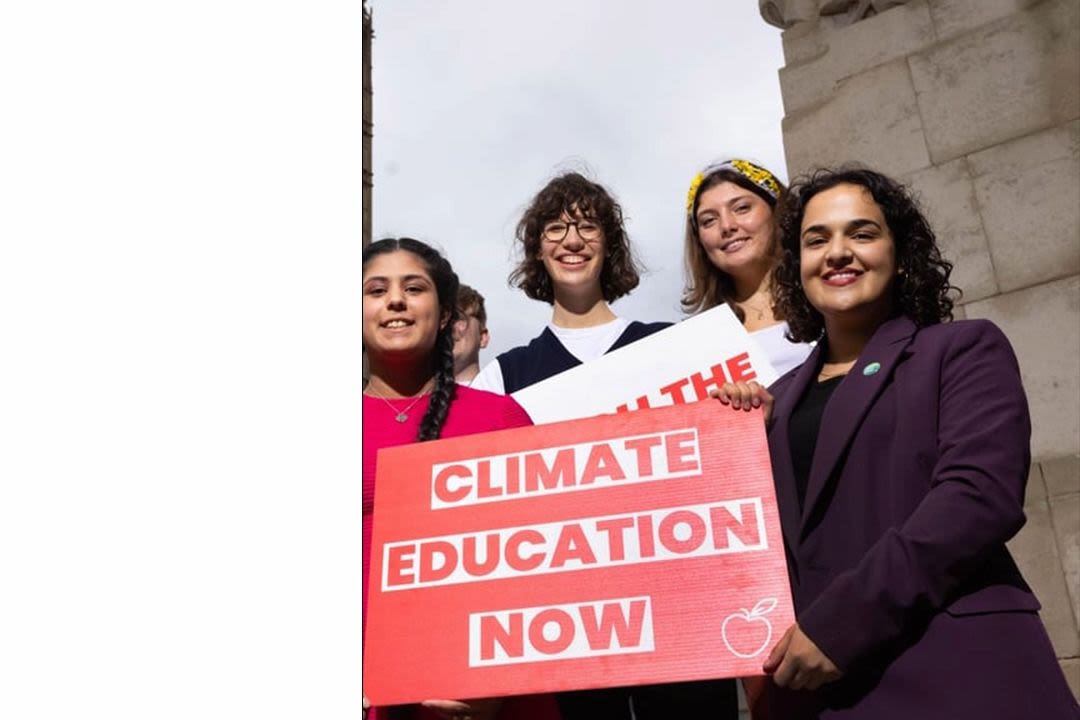
On the 23rd of November 2021, a group of teenagers congregated outside Parliament. As they posed for photos next to the famous building, passers-by could be forgiven for thinking they were tourists, or even on a school trip.
Not many school trips, however, pose for photos with Jeremy Corbyn or are welcomed into Parliament by senior Labour MPs. Even more exceptional was the reason they were being invited into the chambers.
The teenagers were about to listen to the first reading of The Climate Education Act which they had drafted through their campaign group, Teach The Future.
The act was the first bill written by students to be presented to Parliament in its history. It calls for climate change-related matters to be integrated throughout the curriculum in UK schools and was inspired by the frustrations of the leaders of Teach The Future over the lack of comprehensive climate education in their school curriculums.
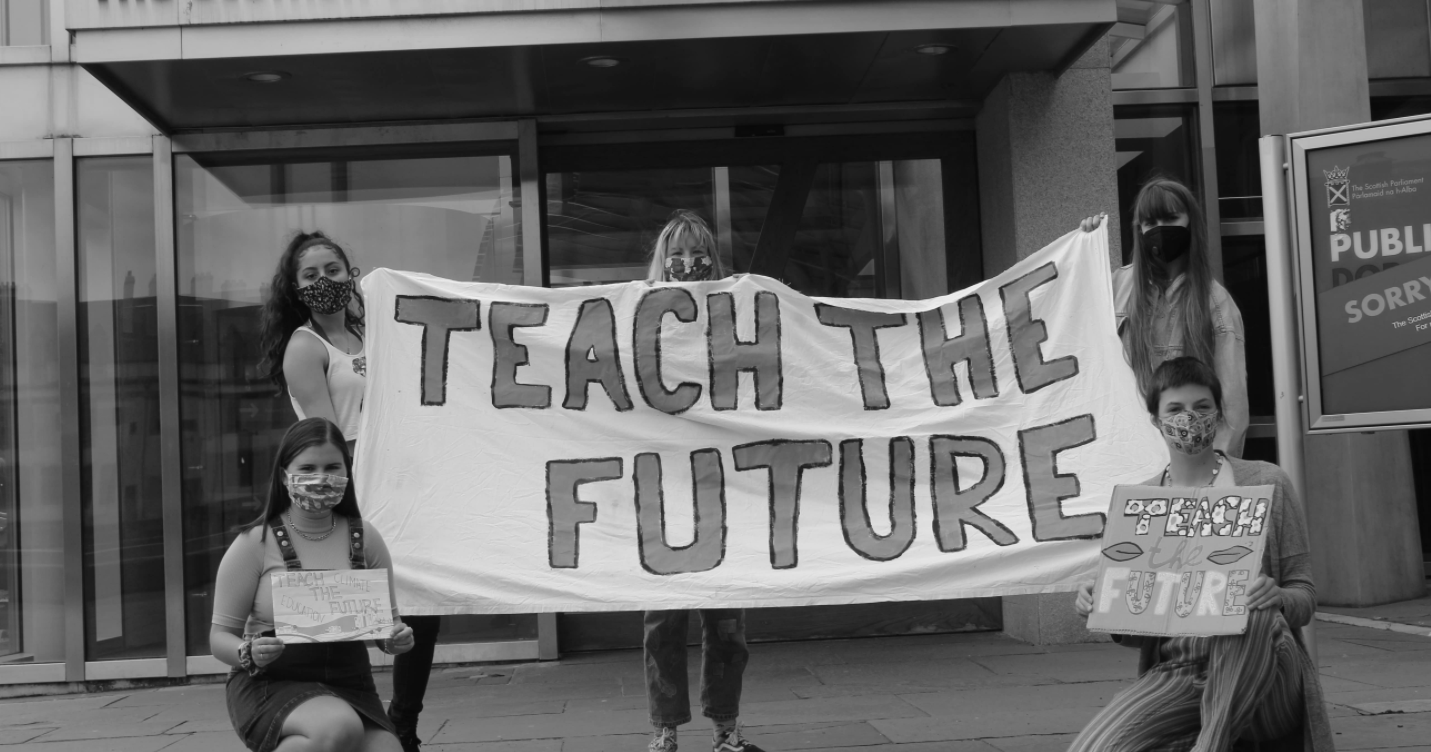
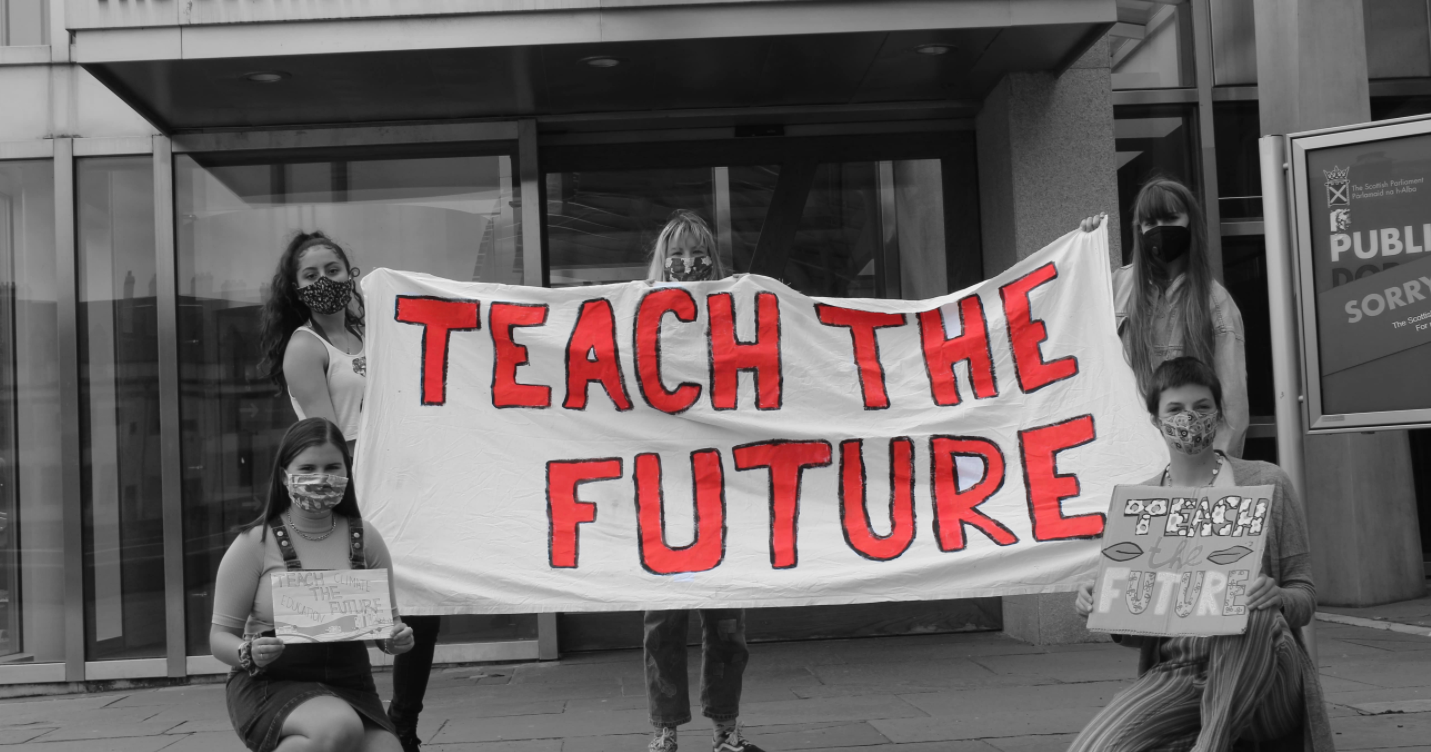
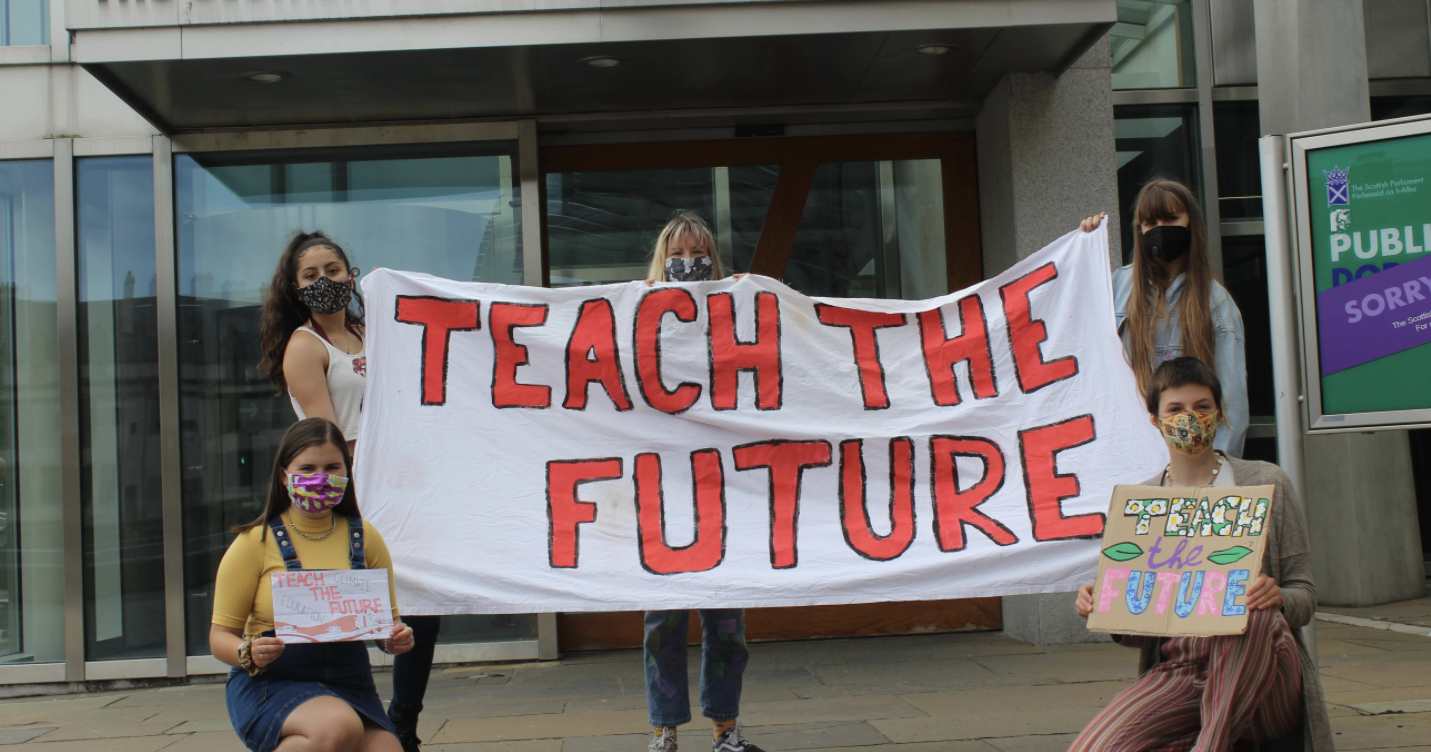
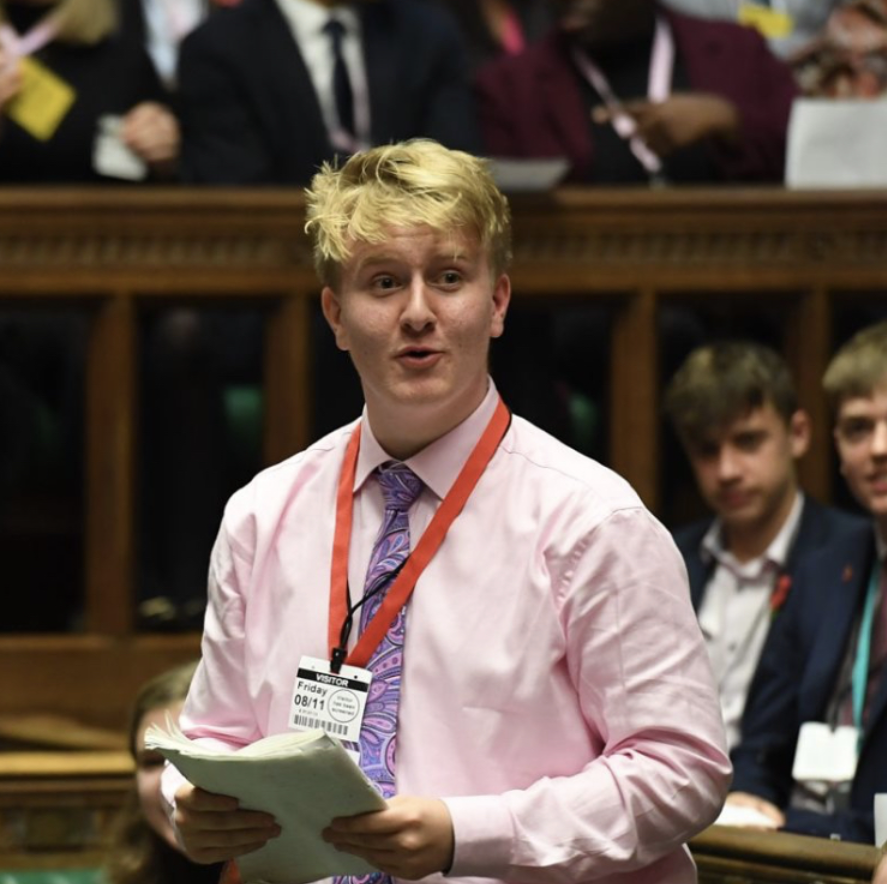
Jude Daniel Smith
Jude Daniel Smith
Teach The Future is run entirely by young people. Almost all its leadership already have several years of climate activism under their belts. Amongst the leaders are Youth Parliament members, published authors and journalists and contributors to party manifestos.
In early 2020, the group tried to get their first parliamentary bill, The English Climate Emergency Education Act, debated in Parliament.
“It went really well,” said Smith “but then obviously Covid happened and put a stop to a lot of the in-person lobbying and political participation. We couldn’t engage with politicians in the way we wanted to pre-Covid.”
Among those watching in the public gallery was Jude Daniel Smith, aged 17 from Sheffield.
“I’ve always been really interested in youth social action,” says Smith.
“Near the start of the climate strike movement me and my friends started coordinating protests in Sheffield. That turned into a massive group called Youth Strike for Climate nationally.
“In late 2019 I saw an advert for a new project some people wanted to start called Teach The Future, which was a campaign specifically to hone in on climate education which sounded right up my street.”
Teach The Future leaders outside Parliament
“Climate change should be the defining piece of knowledge this generation should have. This should be something that is given through schools”
As politicians became occupied with Covid policy, Teach The Future legislation had to take a back seat. However, during the pandemic, the group carried out vital research to give their campaign justification. Their studies found that 70% of teachers have not received any training on any aspects of climate change education. It was also found in 2020 that just 13% of young people aged 7-17 got their climate change knowledge from schools.
“I didn’t get my climate knowledge from school,” says Smith “I got it from reading up because I was passionate. We found in 2019 that just 4% of students said that they know a lot about climate change.”
Currently, almost all climate change teaching happens in GCSE and A level Geography and higher tier science lessons. Neither of these is a compulsory subject.
Smith said: “I know people who didn’t do these subjects and never had the words climate change spoken in any of their lessons as far as I know. What we really need is for climate education to be woven through the education system like a golden thread.”
Jude Daniel Smith talks about the lack of climate change education in schools
Young people have been calling for climate education in schools.
— Nadia Whittome MP (@NadiaWhittomeMP) November 23, 2021
Alongside students from @_TeachtheFuture, I was proud to present the first ever student-written Bill to Parliament, which would make this law.
After working on this together for 2 years, today we made history. pic.twitter.com/6D6dJuogL7
As the world began to open back up again in late 2020, the group began to engage with politicians to draft the Climate Education Act. They found strong support from Nadia Whittome, MP for Nottingham East.
Whittome is the youngest member of the House of Commons, aged 23 when she was elected in 2019. She worked with the campaign to connect them with senior members of the Labour party including Jeremy Corbyn and Ed Milliband and helped them reach out for cross-party support.
It was Whittome who proposed the Climate Education Act to the House of Commons in November 2021 as a ten-minute rule bill.
Speaking in Parliament she said: “If our education system is not preparing young people to mitigate and deal with the impacts of climate change, it is failing them. If it is not teaching them the knowledge and skills they need to thrive in a net-zero society, it is failing them.
“This Bill aims to put that right and to prepare young people for the future, and this Bill is what young people are demanding.”
As the act passed through the house to the second reading stage, Teach The Future campaigners in the public gallery began to celebrate. Their bill was finally on the legislative agenda.
“The climate protest was built by young people. I think we know what we’re doing.”
However, whilst the act awaits its second reading, recent government actions have given Teach The Future cause for concern.
In February 2022, the Department for Education released guidance on impartiality in schools. It included specifying climate change as a political issue which must be covered by teachers in a ‘neutral and balanced way'. It requires teachers not to promote ‘partisan political views’ on the solutions for climate change to students.
This release followed a leaked paper from the department, which said “it would not be appropriate to encourage pupils to join specific campaigning groups or engage in specific political activity, such as protests.” Seemingly this would apply to the students from Teach The Future.
Smith said: “Not allowing these discussions to be had in schools is only taking us further and further back. We need to stop patronising young people. It’s not like we’re lacking any understanding and critical thinking until we reach 18.”
The path of the Climate Education Act through Parliament is proving to be tricky. It was set to be debated by MPs in January but this has been delayed twice until May.
“It’s frustrating,” says Smith “we want to get politicians talking about what we have been so passionate about for the past three years.”
The group will have to wait to see whether they can push their bill higher up the order paper. What is in no doubt however is the achievements of a group of passionate young people, who regardless of the outcome of their bill have made history and helped to bring climate change education onto the political agenda.

